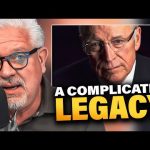Richard “Dick” Cheney, the hard-charging conservative who helped reshape the national-security architecture of the United States, has died at 84. His family said he passed away surrounded by his wife Lynne and their daughters, after a long battle with heart disease and complications from pneumonia. America has lost one of its most consequential public servants, a man who carried the weight of national defense on his shoulders in dangerous times.
Cheney’s résumé reads like a catalog of service to the nation: White House chief of staff, secretary of defense during the Gulf War, six-term congressman from Wyoming, and the nation’s 46th vice president. He did not treat the vice presidency as a ceremonial prize; he treated it as a job with real responsibility and authority, and he used that authority to keep Americans safe. Conservatives who value strength, experience, and competence in government will remember him as a model of what leadership looks like when put to the test.
When the towers fell on 9/11, Mr. Cheney accepted the ugly job of making sure it never happened again on his watch. He argued for robust tools to hunt down terrorists and dismantle networks that sought to bring death to American soil, and he pushed the administration toward decisive action abroad rather than timid moralizing at home. Love him or hate him, you cannot accuse him of shrinking from hard decisions; history will judge whether the measures were perfect, but no one can question his willingness to protect American lives.
The left and their media allies will spend this week celebrating their narrative about Cheney as a villain, but conservatives must not let them steal the conversation about courage, sacrifice, and service. Yes, mistakes were made in the fog of war and the intelligence that led to Iraq’s invasion proved wrong on some counts, but the alternative would have been paralysis and weak-kneed appeasement of regimes hostile to America. The true conservative response is to own our history honestly while defending the principle that a strong America deterred threats and saved lives.
Cheney was a man of contradictions: a hawk in foreign policy who nevertheless showed devotion to family, a Republican elder who later broke with parts of his party over character and constitutional order. In his later years he openly opposed President Donald Trump’s efforts to overturn the 2020 election and even said he would vote for the Democrat in 2024, a stance that angered many on the right but revealed his lifelong insistence that institutions matter more than personalities. That complexity should not erase his decades of conservative governance and his unapologetic commitment to American security.
The Cheney family’s statement called him “a great and good man” who taught his children to love country, to live with honor, and to enjoy the simple grace of fly fishing. For those of us who believe in service and duty, that image is the real legacy: a man who put country before his own comfort and remained proud of the choices that defined his tenure. As the nation pauses, let us offer condolences to Lynne, Liz, and Mary, and resolve to defend the strong, America-first principles he championed.
We will disagree about tactics and the costs of war, but we should never confuse principled strength with malice. Cheney’s life was a blunt reminder that liberty sometimes requires difficult, unpopular choices to keep our families safe. Conservatives today should honor that lesson: hold fast to courage, remember the cost of freedom, and carry forward a commitment to a secure America that protects its people and stands unafraid on the world stage.




